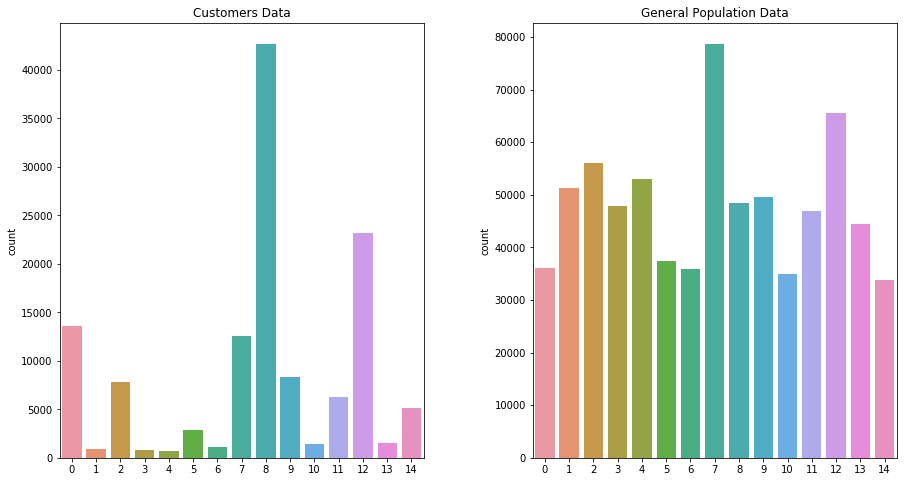- Project Motivation
- File Descriptions
- Results
- Required Libraries
- Licensing, Authors, Acknowledgements
In this project, I applied unsupervised learning techniques on demographic and spending data for a sample of German households. I preprocessed the data, applied dimensionality reduction techniques, and implemented k-means clustering algorithms to segment customers with the goal of optimizing customer outreach for a mail order company.
Identify_Customer_Segments.ipynb and Identify_Customer_Segments.html:
a Jupyter notebook and an HTML file, contain the whole project code to identify customer segments.
The graph below compares the proportion of the data in each cluster for the customer data to the general population data,
As a result, cluster 8 is popular with the mail-order company, while cluster 4 is unpopular with the company.
Most people of cluster 8 have the following characteristics:
- males aged more than 45 years old
- very high money-savers, investors, and inconspicuous
- conservatives neighborhood
- average share of unemployment in community
Most people of cluster 4 have the following characteristics:
- females aged more than 30 years old
- very high low financial interest and be prepared
- traditional workers neighborhood
- high Share of unemployment in community
- Pandas, NumPy, Scikit-learn (Machine Learning Libraries)
- Matplotlib and Seaborn (Data Visualization Libraries)
- random
Credits must be given to Udacity and Arvato Bartlesmann for providing the data and design for this project.
